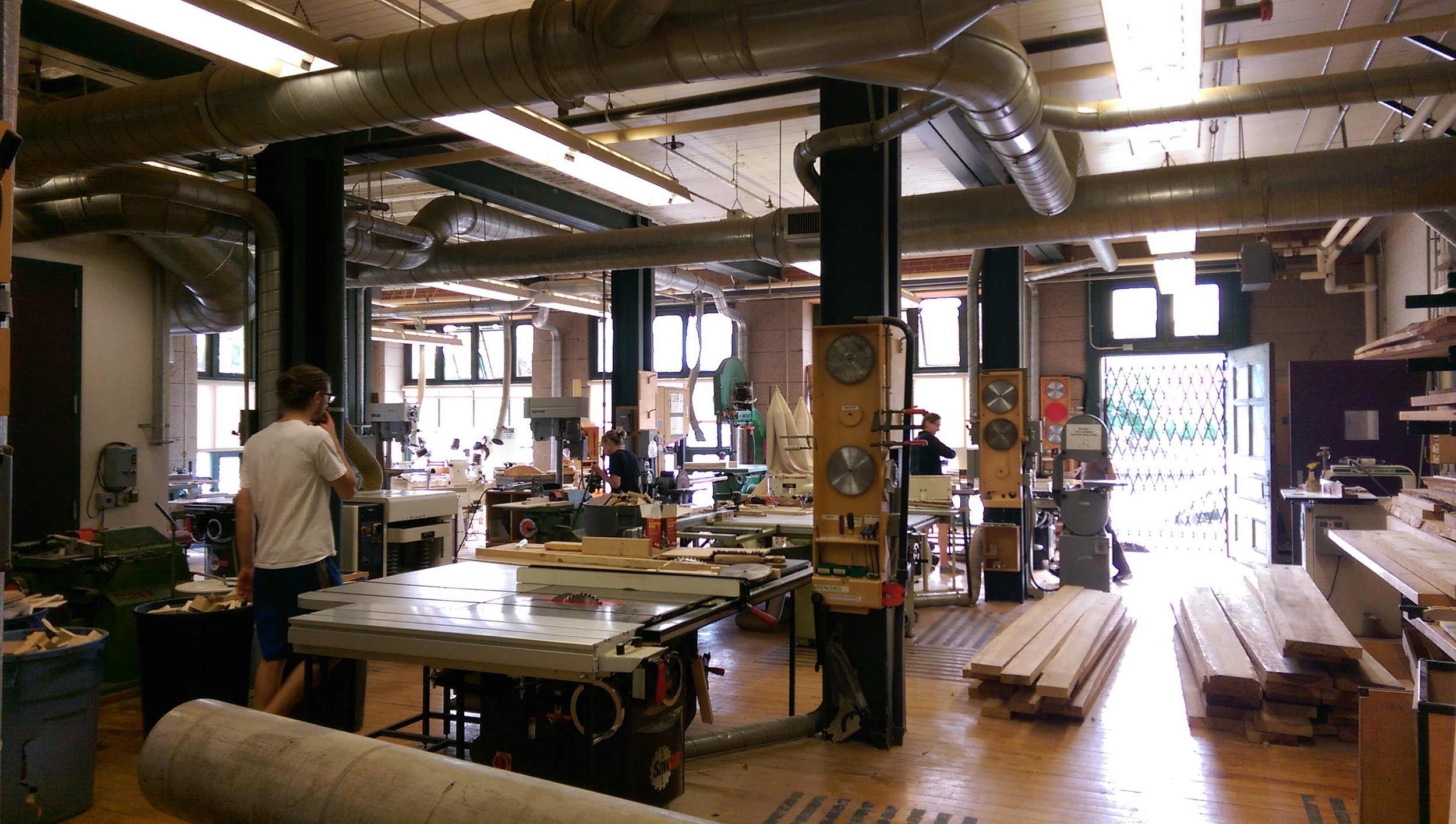
Mark Johnston : Wood Shop Technician
What is the philosophy of your shop?
My philosophy is that the closer you get to the materials and the process, the better your designs will be. I believe in doing very little drawing, other than for inspiration; I care much more about the actual as opposed to the perceived. I would rather have somebody come in, play with a material, pick a machine, let the machines inform their design, and see where it takes them. I find that this often leads to purer design, to more meaningful abstractions from where you originated. Sometimes, thinking too much can interrupt the process. I urge students to let go of what they think a thing should be, and to explore what the thing can offer you back. It becomes more of a conversation.
I see art and design as one thing — I don’t see any difference between them. If you take art away, you lose the essence of what design can become.
My philosophy of teaching has to do with instilling students with a faculty of acute observation rather than merely transferring skills — I’m not necessarily teaching you to be a professional woodworker. Take sharpening a tool, for example. As you go through that process, I want you to learn what that sharp edge can tell you, what it gives you in return, how you get there — I want you to learn how to listen to your senses. I believe this is what makes a good designer: somebody who can observe really well, pair those observations with concepts, those concepts with ideas, those ideas with materials, and those materials with processes. It all starts with careful observation.
What types of processes and classes are taught in the shop?
The classes taught in the woodshed are Wood I, Wood II, and the graduate introductory course. Included in these are all of the typical processes and tools: sawing, planing, turning, routing, joint-making, steam-bending, etc. We also support any other classes or projects that need to make things.
What outcomes for learning do you see from your shop?
Hopefully, students leave the shop with an understanding of what the best is — the best tools, the best materials, etc. I want them to understand what the best is so that they know what to strive for.
What is your background and expertise?
I started out in horticulture. Then in my late twenties, I studied for one year at NC State before transferring to the industrial design department at RISD. After graduating, I worked as a technician in the wood shop for a year, and then began my masters degree in furniture design, also at RISD. I’ve been working here ever since, which by now is about 30 years!
What excites you about working at RISD?
What excites me the most is the caliber of the student and the ability of you all to take on things with very little pushing. That’s my favorite part — working with the students.
Students have also inspired my personal practice, which I think of as “independent design”. I like to play with the status of materials and use common materials in an uncommon way. Usually this results in furniture, but I also create other types of products.
Wood Shop access
Wood I and the Graduate Shop Experience class give you access to hand tools, lathes, and bandsaws. The remaining machine equipment requires taking Wood II. There are also sewing and upholstery facilities in the Wood Shop.
